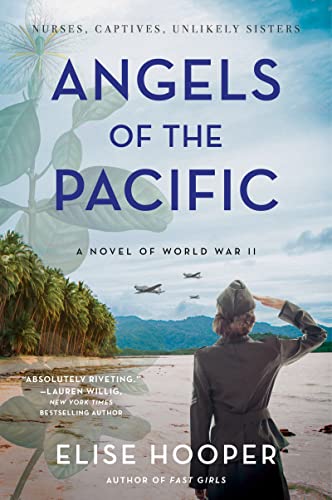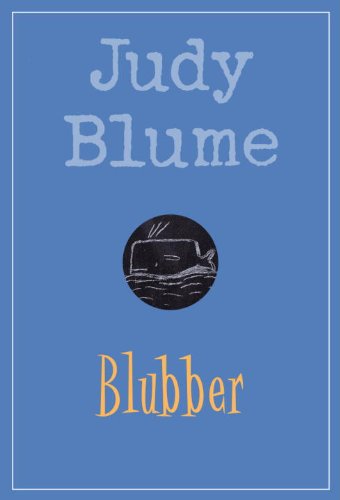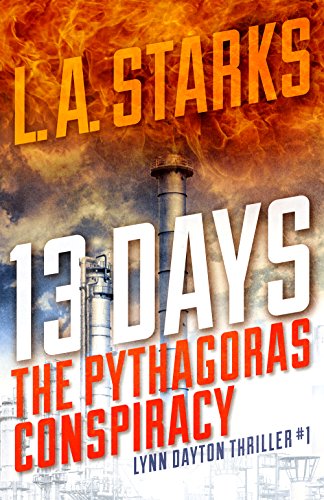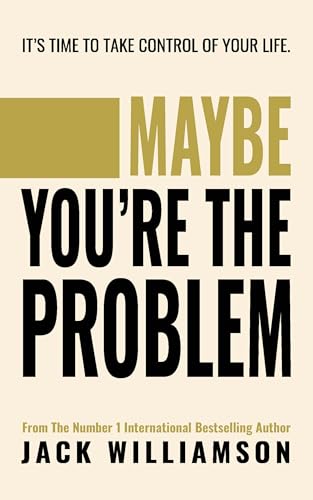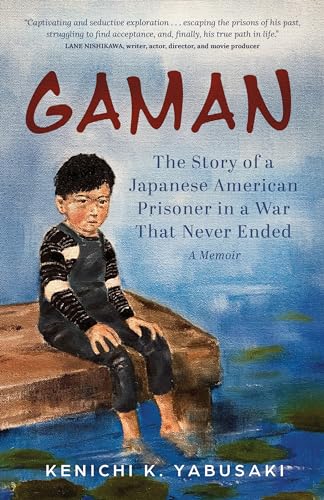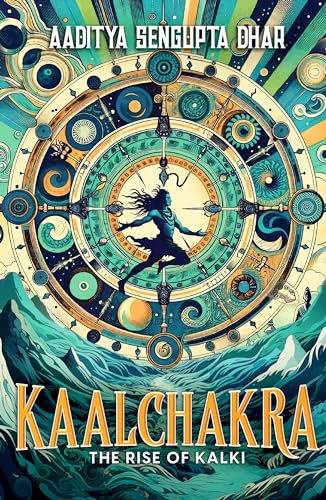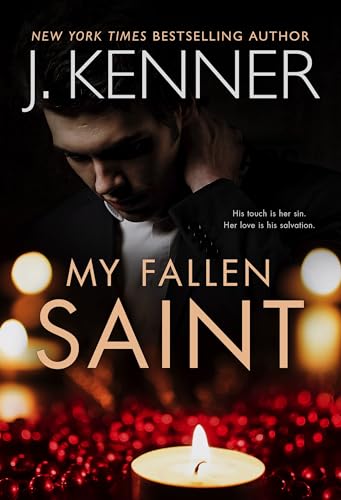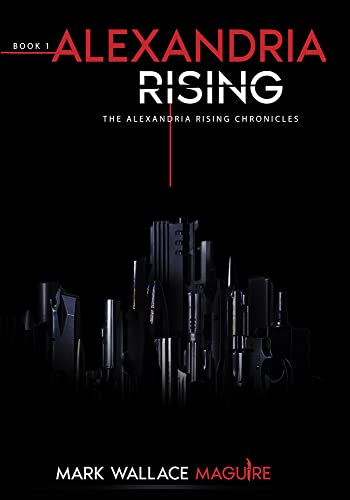Ethan makes his fateful decision after he befriends a Muslim doctor, falsely imprisoned as a suspected terrorist. Their escape leads to a harrowing chase through a Bedouin desert camp in the dead of night, a violent confrontation with his mentor’s murderer in the majestic ruins of an ancient temple in Luxor, and a final resolution with the deputy director of the CIA’s covert operations in bustling market in Cairo. Along the way, Ethan discovers that the Logos also holds the key to understanding a mysterious mystical experience he has suppressed from his past.
And here, for your reading pleasure, is our free excerpt:
PROLOGUE
Syria
2000 Years Ago
The rider had no way of knowing that a simple fall from his horse would change the course of history.
For now, all he could focus on was the mission ahead. He adjusted the leather bag hanging from his shoulder. The mass of the parchment letters inside was insignificant, but the importance of the contents weighed heavily on him. The letters, signed by the High Priest himself, contained the names of those he would arrest and bring back in a fortnight. The rider knew the fate that awaited these unsuspecting men and women; he had made similar treks before. The lucky ones would die quickly, their flesh torn from their limbs by the ravenous animals kept for this purpose. The others would languish in a dark, dank cellar awaiting more gruesome tortures.
The rider shifted on the horse. He was sweating underneath his cloak, especially where the bag bumped against his body in time with the horse’s stride. The sun had nearly reached its zenith, and the flat beige desert provided only an occasional thorny bush or limestone rock outcropping for shade. He squinted against the glare, wiped the sweat from his forehead, and massaged his temples.
At least summer is months away.
He kicked his horse with the heel of his sandal. The animal the council had provided him ambled forward as if it knew of the terrible task ahead. Heat radiated from its damp brown coat, and the bony creature looked like it hadn’t eaten well in months—in contrast to the powerful steeds of the three Roman legionnaires in front of him. The legionnaires, two in their mid-twenties and the third barely a teen, joked with each other, passing a wine sack between them.
Pagans, he thought, but necessary to carry out his mission. He glanced at the long swords sheathed to their saddles. Men like these had to be watched carefully. For them, killing was a sport. At least he was a Roman citizen, and he had rights. But out in the desert no one would know if I simply disappeared. He shook his head to clear it. They would arrive in Damascus soon.
His first stop would be to eat. After two days of only bread and wine, his mouth watered in anticipation of the juicy leg of lamb he would buy. Then his mission would begin. The closer they got to their destination, the more jovial the legionnaires became. The rider, however, didn’t relish the job he was sent to do. He was in the right, of course. The High Priest had made it very clear that this cult must be stamped out. They don’t have to die, he thought. It’s their choice. They were stubborn. Not one had renounced his or her ways.
A sudden glint of sunlight off the armor chest plate attached to the rear of the saddle in front of him flashed into his eyes. A shot of pain pierced through to the base of his skull. He snapped his eyes closed and massaged his neck.
Not again. Not now, please, he prayed.
The headaches had pestered him for the past year at the most inconvenient times. Usually he retired to his room, lying in the darkness for hours until they passed. For the past two months, this thorn in his flesh had occurred more frequently, especially since the council had charged him with ridding the land of the cult.
When he opened his eyes, he saw that the steeds ahead of him had distanced themselves. He kicked his horse, bringing him to a trot. When he caught up, the youngest of the three Romans turned and stared.
“You don’t look well,” Marcus said in an educated Greek. He held up the depleted wine sack. “A drink, maybe?”
The rider shook his head, which was a mistake because the pain spread from the base of his skull to his temples. He brought the sleeve of his tunic to his face and wiped his eyes. He sensed this one would be worse than the others.When he dropped his arm, he noticed that Marcus was still staring at him, a curious expression on his stubble-covered face. That’s when he noticed the taste. Copper—as if he’d placed a coin on his tongue to clean it, which was an unusual thought, he realized, because he’d never done such a thing. But he could think of no other description for the metallic flavor.
He almost said something to Marcus when he noticed the light again. As the legionnaire’s horse walked along the compacted sand, the sun reflecting off the armor danced in his vision. But this time it didn’t exacerbate his headache. To his surprise, the pain, which moments earlier had thundered through his skull, dissipated. He watched with interest as the light radiated outward from the armor, eclipsing the legionnaire and the desert around him. A moment later he could see nothing but the light.
He wasn’t sure what caused him to fall from his horse. The light seemed to lift him from his saddle and deposit him on the coarse earth. He felt no pain.
“Paul!” Marcus called to him. The words came from a great distance. “Paul, are you hurt?”
The rider knew he should respond, but another voice eclipsed the legionnaire’s. This voice, however, didn’t come from the other Romans. It spoke to him from a different place. He had never heard this voice before, but at the same time it was familiar, as if it had been with him all along.
He listened. Then he understood.
His mission, his life, his very identity—none of it mattered anymore. The wonder of the revelation spread through his body like a drink of hot cider on a winter day. The answer had been within him from the beginning. He had just never listened. He had misunderstood the cult—they had been right all along.
CHAPTER 1
Yale-New Haven Hospital
Present Day
“Do you smell something, Doctor? Like honey?”
Dr. Ethan Lightman placed a hand on his patient’s shoulder. Bedside manner wasn’t one of his strengths, but he made an effort. “Liz, just relax. You’re in the early phase of the seizure.”
He suspected that she was experiencing the first stages of an SPS, a simple partial seizure, which could affect a patient’s senses—smell, touch, sight, hearing, taste—but not their consciousness. Good, he thought. It’s beginning.
“I’m scared.” Her eyes were wide and her pupils dilated. “I haven’t been off my Phenytoin for over two years.” She tugged at the handmade quilt that covered her on the narrow hospital bed. The IV line attached to her arm swung above her body. “And I told you what happened then.”
He nodded. He knew his patient well: Elizabeth Clarkson, a thirty-six-year-old woman whose curly black hair and freckled face gave away her Irish descent. She looked like a younger version of Ethan’s mother, who had passed on her dark hair and fair complexion to him. During their initial interview, he’d learned that Liz had been on epileptic management drugs since she was seventeen. The unpredictability of her seizures made holding down a job difficult. She now worked at a flower shop part-time. But her misfortune, he hoped, might solve the mystery that had consumed the past five years of his life. Her seizures were special.
“That’s why we have you in the hospital.” He gestured to the nurse with the silver hair tied in a bun on top of her head who was arranging instruments on the stainless steel table on the opposite side of the bed. “Judith has some nice drugs for you if the experience becomes too intense.”
“That’s right, Sweetie”—Judith touched her arm—“I’ll take good care of you.”
The fifteen-by-twenty-foot space was larger than the standard private hospital room because it was set up for longitudinal studies. Liz had lived there for two weeks, undergoing LTVM—long-term video monitoring, a protocol used on patients with difficult cases of epilepsy. She was continuously monitored by video and by EEG, electroencephalography. Although the room had the sterile smell of antiseptic, and the clean but scuffed white linoleum tiles left no doubt as to the hospital setting, they’d let her hang a swath of multicolored silk in an Indian design over one wall, which, along with the pictures of her three cats on the bedside table, helped to soften the room.
She smiled at him. “Are you sure you’re old enough to be a doctor?” Her blue eyes dropped down the length of his body. He felt his face and neck flush.
Ethan knew he looked younger than his thirty-two years. Although he was nearly six-four, he was lanky. At times, usually inopportune ones, he tripped over his own size thirteen shoes. He had a runner’s build—though he didn’t run. His high school track coach had begged him to try out for the team, but after a few practices, both knew he wasn’t meant to be an athlete.
“Old enough,” he said, returning her smile. He suspected it looked awkward. He pulled his penlight from the breast pocket of his lab coat to keep himself focused.
“At least you don’t think I’m crazy. I mean, the things I used to see during my spells.”
He didn’t think she was crazy. On the contrary, he was determined to understand the etiology, the causation, of her visions. During her early twenties, Liz had been active in her church. In addition to working as the minister’s administrative assistant, she’d led an adult Sunday school class, a Tuesday morning Bible study, and a prayer group. However, after she’d revealed the details about her special experiences to the minister, he had asked her to leave. The things she saw were not natural, he’d explained, and he feared that the devil might be at work in her mind.
Ethan checked the connections of the nineteen wires attached to her scalp; they joined in a single bundle below the bed and then ran along the floor until they terminated at a computer monitoring station. The computer recorded the electrical signals originating from Liz’s brain—her EEG—and had sent a text message to his cell phone fifteen minutes earlier, as soon as it detected unusual sharp-slow waves.
He hoped this time he would get the data he needed. He felt the tension in his shoulders as he bent to examine the dilation of her pupils with his penlight. He and his mentor, Professor Elijah Schiff, needed a breakthrough. They weren’t there to cure Liz of her epilepsy. Her condition was under control with the medication that he’d stopped when she entered the study.
If I could just capture an EEG of one of her episodes, then maybe . . . He let the thought trail off.
Ethan and Elijah had hit a dead end, and they were running out of time. They had exhausted their grant several months earlier. While Elijah was out canvassing the nonprofit community for more money, Ethan was working harder than he had in his life, trying to demonstrate progress—trying to prove that their idea wasn’t just a pipe dream. In his gut, he felt they were close to making one of the greatest breakthroughs in modern psychology. But not everyone believed that their theory was plausible. In fact, most of their colleagues ridiculed the idea.
“Dr. Lightman!” an urgent voice from the back of the room interrupted his thoughts.
He’d almost forgotten about Christian Sligh, the second-year grad student sitting at the small wooden desk overflowing with computer equipment. The bundle of electrodes attached to Liz’s scalp terminated into ten differential amplifiers, which boosted the slight electrical signal coming from her brain activity. These signals were picked up and analyzed by the computer workstation, which filtered out extraneous signals, such as any electrodermal response—spontaneous electrical impulses across the skin caused by a fluctuation in emotion—or the EMG signals produced when muscles contract. Ethan only cared about capturing the electrical signals produced by her brain.
Chris stared at three twenty-inch LCD monitors. With his shaggy blond hair, he appeared more like a surfer from Malibu than a psych graduate from Notre Dame. The flip-flops and shorts enhanced the surfer image, but his wool sweater was a concession to the cold New Haven rain they’d experienced that fall. Ethan didn’t know what he would do without his grad student. Chris had a knack for wading through the bureaucracy of the various university approvals their study required. Ethan didn’t have the patience for paperwork; he was too busy spending late nights working on the project itself.
The faint beeping of equipment echoed in the background. “I’m getting some interictal activity in the temporal lobes,” Chris said.
Ethan turned to Liz. She stared at the ceiling without blinking. Judith reached for her arm to place a blood pressure cuff on it. He touched the nurse’s shoulder, shaking his head. He didn’t want any external stimuli to influence the patient’s experience or disrupt the EEG. Judith withdrew the BP cuff with an annoyed look.
Liz gazed at the ceiling with an expression that exuded relaxed concentration. He guessed that the seizure was spreading: probably evolving from an SPS to a CPS, a complex partial seizure. He wondered if it was still primarily located in the left temporal lobe. He was torn between observing at her side and joining Chris at the computer screens. But the EEG was being recorded, and he would spend the night studying it.
“Doctor,” Judith said in a voice just above a whisper, “hasn’t it been long enough?” She held a syringe in her hand. Her brow was furrowed.
He shook his head. He’d explained the protocol to her several times before, but she’d grown close to the patient over the past weeks. Next time, he would rotate the caregivers.
Liz’s voice caused both of them to break their stare-off and look down at her. “It’s beautiful.”
He was uncertain what to do. Did he engage her in conversation or let the experience play itself out? Sensing Judith’s restlessness, he asked, “What do you see?”
“Beautiful.” Her voice had a distance to it.
“Uh, Doctor,” Chris called from behind him, “the seizures are originating in the left temporal lobe.”
I was right, Ethan thought.
“But they’re spreading quickly!”
At that moment, Liz’s body went rigid. Her legs and arms stiffened as if she was being hit by a sudden jolt of electricity. Her hands arched upward on the quilt, each of her finger joints locked out.
“It’s time, Doctor,” Judith said. She moved the syringe toward the IV.
“A minute more.” The most important data would be from the early stage of the seizure, when it was isolated to the temporal lobe, but he needed a complete picture. Too much was at stake.
Then Liz’s eyes rolled back in her head, and her body began to convulse. Her chest heaved while her arms and legs shook as if being shocked by a rhythmic electrical pulse.
“She’s going myoclonic!” He lunged for her shoulders.
“Doctor!” Judith screamed.
Ethan knew he was losing control of the situation. Judith jammed a roll of gauze into her mouth—quick thinking, he realized, but he should have asked for it earlier.
“Now!” he instructed the nurse while he struggled to control Liz’s shaking arms. “One gram of Phenytoin, two of Ativan.” Normally he would have doubled the Ativan dose on a seizure this strong, but he wanted to control it without sending her into unconsciousness. He needed her clear memory of the experience.
Within ninety seconds of Judith administering the antiepileptic and anticonvulsant meds, the myoclonic jerking ceased. Ethan released the patient’s arms. Judith wiped Liz’s forehead with a cloth while gently removing the gauze from her mouth. The nurse didn’t look at him.
He realized that his own hairline was also damp with perspiration. Taking a step back from the bed, he wiped his eyes on the sleeve of his white lab coat. His heart was pounding, and he was breathing deeply. He recognized the signs: his own sympathetic nervous system was engaged in a fight-or-flight response.
Liz’s eyes opened as if she was awakening from a nap. “Try not to move,” Ethan said. “The seizure is over now. We’ve given you some medication that might make you feel a little groggy.”
He stepped to the bed, bent over her, and placed two fingers on her neck. Her pulse was coming down. He wished his would do the same. He focused on her expression, curious as to what she’d remember in the post-ictal state. Many patients had complete amnesia, but the rare ones with her condition recalled every detail. Those details often changed their lives forever.
While he waited for Judith to give her a few ice chips, he grabbed his black notebook from the leather satchel he’d left near the room’s entrance, pulled a chair over to the bed, and opened the notebook.
“Liz, if you’re feeling up it,” he asked, “can you describe what happened?”
She turned to him, locking her eyes onto his.
“Infinity.”
She smiled a dreamlike smile, as if to say anything else would be inexact.
CHAPTER 2
Mall of Emirates
Dubai
Mousa bin Ibrahim Al-Mohammad shifted the backpack from his left shoulder to his right. He was sweating underneath his heavy coat. At least the air conditioning in the mall provided some relief from the October heat wave Dubai was experiencing. He walked across the polished marble floor, passed the gleaming brass columns of the Middle East’s second largest mall, and paused at the window of the Harvey Nichols store. Amira, his eight-year-old daughter, pressed her nose against the glass. The mannequins were dressed in crisp linen pants and bright polo shirts, as if they were enjoying at day at the yacht club. He wished he was dressed similarly, rather than in the jeans, pullover, and heavy coat he was wearing. He shifted the backpack again.
Turning back in the direction he was heading, Mousa almost ran into another man hurrying by who was dressed as inappropriately as he was, and similarly sweating. “Pardon me,” he said to the man.
Without breaking his stride, the man turned his head and nodded. “As-salaam alaykum.”
The man was about Mousa’s height, just under two meters, and had a similar olive complexion and short dark hair. He was younger than Mousa by a few years—late twenties or early thirties—but unlike Mousa, who was clean-shaven, this man had a week’s growth of beard. Jordanian like me, Mousa thought.
“Wa alaykum as-salaam,” Mousa replied.
A grin crept across the other man’s face as he continued his journey in the direction of the food court. Mousa noticed that they carried the same backpack in a different color. The man’s was blue and his was red.
“Baba, may I have a cocoa, please?”
Mousa smiled at his daughter. “Don’t you want to get on the slopes before they get too crowded?”
He pointed to the giant glass windows to their right. Beyond the windows lay a sight that still astounded him, even though this was the third time he had seen it. In the middle of this shopping mecca in the center of a desert country on the edge of the Persian Gulf was an indoor ski slope over eighty meters high. The chairlift wound up to the left past where he could see. A wooden play structure with several tubing runs, one of his daughter’s favorite activities, occupied the lower section of the slope closest to the windows. The main ski slope lay just beyond, complete with real snow and fake evergreen trees. Nothing like this existed in Amman, their home. He made it a point to stop here whenever he had a conference in Dubai. He looked forward to the cold air inside; then he would appreciate his extra layers of clothes.
Traveling to Dubai was like exploring another world. Whereas Amman blended aspects of a modern city with its ancient heritage, Dubai looked as if it had sprung out of the desert overnight. Even New York, where he had been two years earlier, paled in comparison to the hundreds of skyscrapers rising from the red sand and piercing the cloudless blue sky. While he was proud to see a fellow Arab country achieve this level of success, something about the conspicuous display of wealth disturbed him. He thought of the Egyptian laborers, also fellow Arabs, who were bused into the city’s construction sites each day from communal living quarters he didn’t even want to imagine.
He also thought of his own country and the burden of the thousands of Palestinian refugees his government struggled to accommodate. At King Hussein Hospital, where he was an orthopedic surgeon, he often saw Palestinian patients whose limbs had been blown off by land mines. These people had been displaced from their rightful land by the Israelis, certainly, but what had his Arab brothers done to help besides complain about Israel in the media? Taking in the opulence of the mall—Dolce & Gabbana, Escada, Tiffany, Versace, not to mention the ski resort he was going to—he knew that much more could be done among his own people.
Amira, his princess, tugged on his sleeve. “Baba!”
He gazed down at her. With her sharp nose, angular jaw and cheekbones, and wide eyes, she looked noble. Like the queen, he thought, and like his wife, Bashirah, who had stayed behind in Amman with their newborn son.
“What if we ski first, and then I’ll get you an extra large cocoa?”
She put a little finger to her lips, thought for a minute, and then asked, “With cream?”
“Extra cream.” He grinned.
“Good. We ski first then.” She took his hand and skipped beside him as they headed toward the entrance.
Fifteen minutes later, they sat together on the chairlift as it approached the top of the slope. He placed a hand on his daughter’s head. She was bouncing in the seat. “Do you remember from last year?”
“I liked France,” she nodded. “But indoors, Baba! This is really neat.”
Mousa clicked his skis together, shaking off the bit of snow that had stuck when he boarded the lift. He wished he had more opportunities to ski. He tried to schedule at least one medical conference a year somewhere cold. Last year, he’d taken his wife and daughter to the Alps.
As they began to descend the slope, he stayed a couple of meters behind Amira. He cut slow arcs in the grainy snow as his daughter headed straight down, her ski tips pointed toward each other in a snowplow position.
The explosion hit without warning.
Just below and to the right, the glass windows separating the ski slope from the interior of the mall, the same windows where he and his daughter had been standing minutes earlier, imploded in an orange ball of fire. He watched the shards of glass shred the clothes and skin of a Saudi family of four skiing just fifteen meters below them. Before his brain had a chance to register the horror of the sight, the pressure of the blast’s concussion hit him like a solid wall of heat. He felt his right eardrum rupture. He rocked backward but somehow managed to stay on his skis.
Amira’s hands flew to her head. His daughter’s ski tips crossed, and she tumbled forward. Her body appeared to fall in slow motion toward the fire and glass raining on the snow before them. Fear cinched Mousa’s heart.
He shifted his weight to the outside of his right ski, cut across the snow, and focused on pointing his body straight downhill. Bending at the waist, he picked up speed. He was almost parallel to his daughter, whose descent on her stomach was slowing. He thought he could hear her scream, but it was hard to discern anything with his ruptured eardrum and the explosions booming from the mall.
The moment he passed her, he carved his skis to the left. His plan was to arrest her fall by stopping in front of her. Then the ground underneath him buckled upward, as if an earthquake had struck the ski slope. He toppled over.
The manmade snow wasn’t as soft as the powder he’d skied on in the Alps. He hit hard on his side, his left leg twisting underneath him. He felt something pop in his knee and knew instantly it was his ACL—he’d performed many reconstructions of this ligament on Jordan’s top football players. He ignored the searing pain that shot through his leg and forced his body to roll over as his momentum carried him down the slope. He had to reach his daughter.
There!
Amira was beside him, a wide-eyed expression of terror on her face. He shot out a hand, grabbed her fluffy pink jacket, and dug the heel of his ski boot on his good leg into the snow. They stopped about midway down the slope. He pulled his daughter to him. Her head fell into his chest. He felt her press against the small travel version of the Qur’an he kept in his pocket.
Allah, please let my daughter be okay, he pleaded.
He shouted over the screams of the wounded skiers around them, “Amira, where are you hurt?”
Her lips quivered. “Baba, what happened?”
“Are you injured?” He tried to push himself upright, but his left leg collapsed underneath him. He shifted his weight and rose to his right knee instead. He ran his hands along her body, carefully palpating her limbs, feeling for any sign of injury.
“I’m okay, I think,” she whimpered.
For the first time since the explosion occurred, Mousa allowed himself to take a breath. What happened? Surveying the destruction around them, the horror of the tragedy came to him. The mall had been bombed.
As soon as the realization struck him that the explosion was most likely deliberate, another more disturbing thought occurred. The smell. Not just fire and smoke, but the sickly sweet aroma of burning plastic. All that remained of the plate glass windows between the slope and the shops of the mall were a few jagged shards thrusting out of the twisted metal frame. He could see none of the shops, nor the food court where they might have been enjoying their cocoa. Gray smoke billowed from the mall into the ski area. The smoke glowed orange where a fire raged somewhere behind it. If they didn’t leave quickly, they would die. As if to accentuate the point, the eerie sound of protesting metal came from above his head.
He knew that an emergency exit to the outside must be located somewhere at the bottom of the slope. He scanned the area around him. The formerly pristine snow was littered with bodies and debris. Some of the skiers, faces contorted in agony, held onto limbs leaking bright red blood onto the white snow. Others lay quiet, dead. A moment of indecision struck him. He was doctor, and these people needed help.
“Baba?”
He gazed into the dark eyes of his daughter, who clung to his side. Then a loud groaning noise pulled his attention upwards. The ski lift was swaying back and forth. The metal poles holding the cables aloft slowly bent over toward them.
He made his decision. He sat back onto the snow and pulled his daughter onto his lap. With the screeching of the metal becoming louder and the stench of the smoke bringing tears to his eyes, he pushed off, watching below to make sure they avoided the glass that had peppered the slope.
As they picked up speed on their controlled slide, a loud pop echoed through the resort. The lights went out, and they were plunged into darkness.
CHAPTER 3
Sheffield-Sterling-Strathcona Hall,
Yale University
Five years’ work. The breakthrough no one thinks is possible.
Dr. Ethan Lightman gazed at the machine in the center of the room: the Logos. It offered so many possibilities, and yet he was balancing on a narrow ledge. He had to produce results—and fast. He swiveled his chair around to his desk, the wheels creaking against the well-worn strips of maple flooring. He’d worked for the past ten hours in the expansive room that doubled as his lab and office in Sheffield-Sterling-Strathcona Hall, known by everyone at Yale as SSS. The gothic cathedral at the intersection of Grove and Prospect Streets housed Yale’s Psychology Department. All of the lights in the lab were off except for his Tiffany desk lamp and the blue glow from his laptop. The hallways were silent.
Ethan ran his fingers through his hair. I should leave and come back in the morning. The last thing he’d eaten was a Snickers bar, and that was five hours ago. But he sensed that he was close. He focused on the lines of code displayed on his monitor.
The data he’d collected from Liz’s EEG during her seizure was rich with potential, particularly when combined with the results from a study he’d worked on as a young medical doctor writing his PhD dissertation in the field of neuropsychiatry. He clicked a window that brought up a color image of the two hemispheres of the brain of one of the subjects from the earlier study. He thought back to the small group of Buddhist monks and Catholic nuns who had been quite willing, even curious, to be injected with radioactive dye so that he could scan their brains using SPECT and fMRI analysis. Since Liz’s seizure the previous day, he’d studied the spikes and troughs of her EEG until he was dizzy. His dilemma now: how to combine Liz’s data with the earlier brain scans so he could program the machine in the center of the room? He knew he could make it work; he just wasn’t sure yet how he would do it. His colleagues in the psych department delighted in predicting that the Logos would do nothing. He would prove them wrong. He had to: his shot at tenure depended on it.
Massaging his temples, he reclined in the chair whose frayed fabric seat cushion had seen several generations of Yale professors come and go. An untenured assistant professor, Ethan needed to produce results or he’d find himself teaching at some small college in a town he’d never heard of before. But it wasn’t only his career that drove his search for answers; he longed to understand what had happened to him that day. He pushed the memory away. Ancient history, he thought. He was a research scientist, and right now he needed to focus on the task before him.
He massaged his temples again. Not now, he thought. He took a moment to inventory himself. No tunnel vision, no nausea. Those were the usual symptoms that indicated a migraine was beginning. If one developed, he wouldn’t be able to work for the next twenty-four hours. He opened the top drawer of his desk and removed a yellow prescription bottle. He popped the Topiramate into his mouth and washed it down with a swig of water from a half-full bottle. He was first prescribed the drug when he was thirteen. He needed it most frequently when he was under stress.
He glanced at the desk to his right. While his workspace was always immaculately organized, Professor Elijah Schiff’s had stacks of psychology journals and notebooks filled with his illegible scrawl strewn about. Five years earlier, when Ethan became his research assistant, he’d tried to organize the senior professor, but the attempts hadn’t lasted long. Elijah had his own system. He also possessed the most brilliant mind Ethan had ever encountered. After his father’s sudden death from pancreatic cancer when he was a junior in high school, Ethan had been without a male mentor until Elijah took him under his wing. The senior professor had also been his main source of comfort after the horrible accident that had taken Natalie, his fiancée, three years earlier. He shook his head to clear the memory.
Just then his eye caught a Post-it note stuck to the cover of one of the journals. Elijah was fond of leaving bits of wisdom for his students on these notes, and he still considered Ethan one of his students. Ethan peeled the yellow note off of the magazine and stared at the mixture of cursive and print: “Truth cannot be known, only approximated.”
He slapped the note back on the magazine. If truth can’t be known, then what are we doing here? He and Elijah shared the same professional interests and goals, but they approached their project from two different perspectives. Maybe that was why they worked well together.
Suddenly, he had a flash of inspiration that caused him to start, as if a glass of cold water had been poured over his head. The wavelength, not the amplitude, of the EEG is the key, he realized, and it has to be applied asynchronously to the left and right temporal lobes.
The idea was like a spark that had smoldered within him and suddenly ignited with a breath of air. As he returned to his computer, he was grateful the headache was keeping itself at bay. His fingers flew across the keys as he rewrote a portion of the code. Then he reran the simulation analysis. He wiped his palms on his khakis while he stared at the three open windows on his laptop. One contained the script of the code he’d been writing, the second a graph showing the electrical impulses the Logos would create in a subject’s brain, and the third a series of ones and zeroes—binary code—that was the computer’s translation of his programming.
When the analysis was complete, he studied the results. Was the answer to the past five years of research really that simple? He swiveled his chair and stared at the machine. Now all they had to do was to test it.
He thought back to Liz’s vision. “What do you mean by infinity?” he’d asked her.
“Words are inadequate, trivial,” she’d said. “It’s something that must be experienced.”
“Can you try?”
She’d put a finger to her lips for a moment, shrugged, and said, “God.”
Continued….
Click on the title below to download the entire book and keep reading Jeffrey Small’s The Jericho Deception: A Novel>>>>


